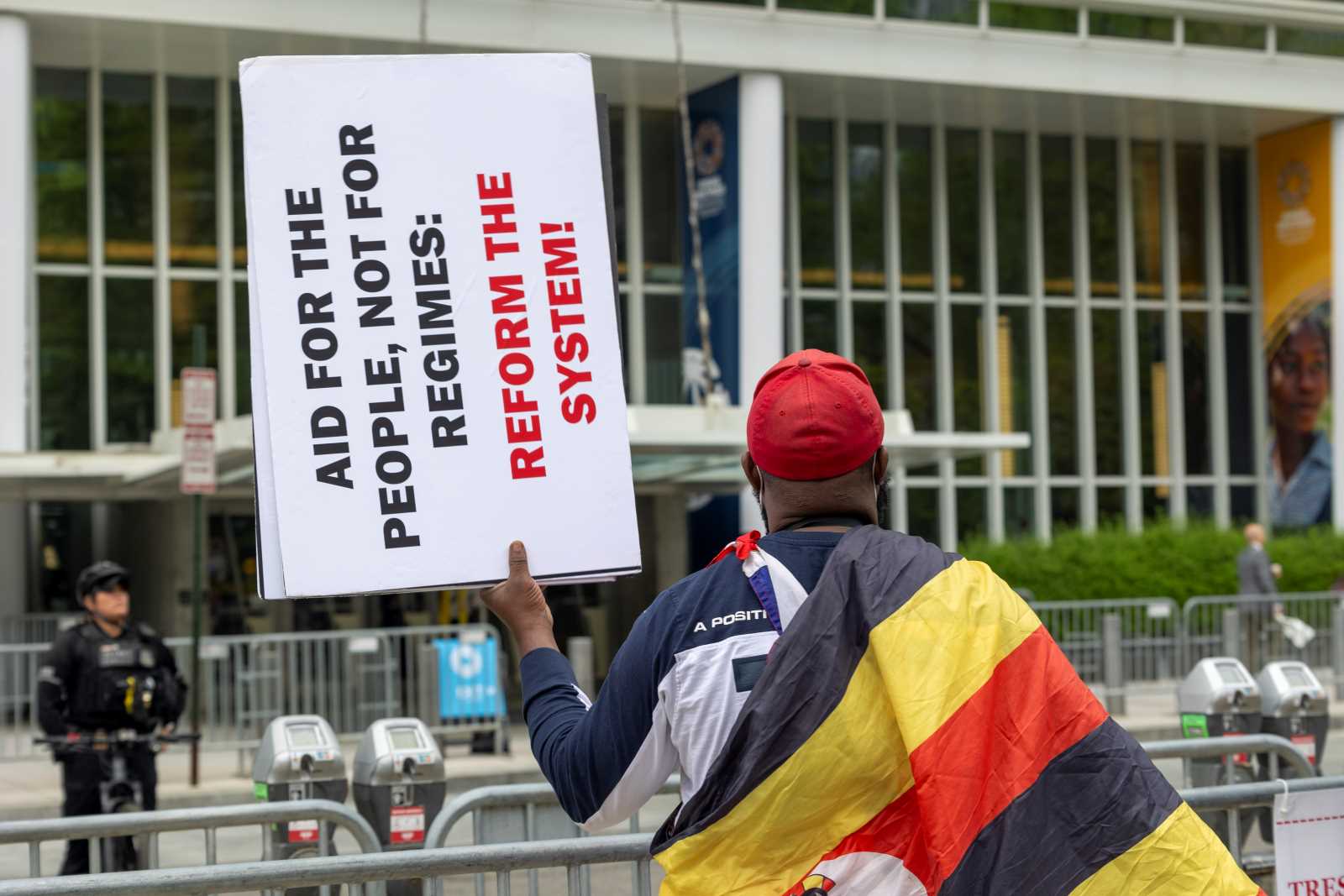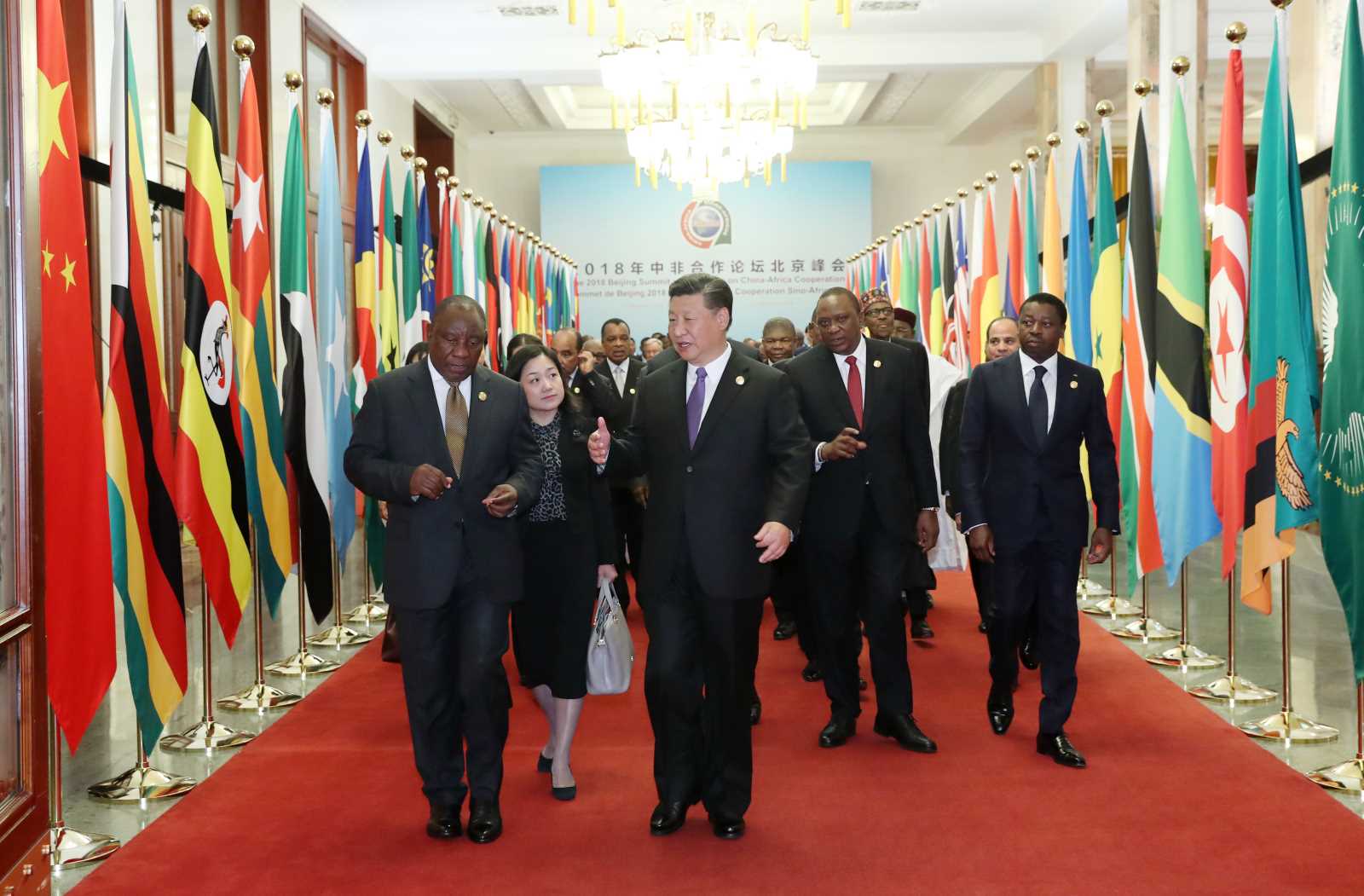Rule of law
Assess new legislation early on

Poorly-conceived laws can have a negative impact on economies, social development and the natural environment. They are also likely to harm the credibility of government institutions. Moreover, they may conflict with a country's existing laws.
Regulation impact assessment (RIA) is a methodology that helps to ensure that new legislation makes sense. Almost all OECD countries carry out different varieties of RIAs. Governments of developing countries and emerging markets have taken such initiatives too. The basic idea is to ensure that new laws are only passed if they are necessary and if the potential benefits outweigh the costs for affected parties.
An RIA means that experts and stakeholders examine regulatory alternatives early in the legislative process. The goal is to improve the quality of any new legislation and to make sure laws do not proliferate unduly. RIAs thus serve public participation in democratic decision making and, at the same time, provide legislators with a better basis for taking decisions.
An RIA does not only make sense in regard to new laws however. The methodology can also be used to revise existing laws and do away with outdated legal norms. In the context of development cooperation, various partners are currently assessing existing laws this way. Typically the focus is on how laws limit private-sector companies and thus restrict private-sector development. In Cambodia, for instance, the Asian Development Bank (ADB) is currently carrying out a project to support the government in its effort to institutionalise RIA and revise existing laws. Similar projects are underway in Malaysia, the Philippines and Vietnam. Generally speaking, the aim is to cut red tape.
A lack of assessments
While some development projects include RIAs of existing laws, new laws are not often subjected to that kind of scrutiny. That is my experience in Cambodia and Indonesia. As an expert for the Centre for International Migration and Development (CIM), a German agency, I am supporting the Cambodian government in implementing legal and judicial reforms, primarily in regard to the creation of an administrative procedure law. This law is meant to regulate interactions between citizens and the state by standardising decision-making processes and introducing general guidelines for action.
Apart from this new law, the legal and judicial reform plans in Cambodia foresee the passage of 22 other new laws. Donor agencies have supported or are currently supporting eight of these reform initiatives. But none of the agencies concerned has carried out a timely RIA in order to determine whether the promoted law really makes sense.
I am neither suggesting that these laws are meaningless, nor that they do not deserve support. I only wish to point out that any proposed law has positive and negative consequences for affected parties, so its possible impact should be assessed in advance. Moreover, alternatives that are tailored to the needs of the country concerned should always be considered.
How to use an RIA
The RIA methodology is quite general. It must always be adapted to the national context and the specific legislation in question. With CIM support, a group of Cambodian legal experts assessed the administrative procedure regulations by taking the following steps in the indicated order:
- analysis of the regulatory and institutional environment for drafting the new law,
- spelling out a policy to define the purpose of the law,
- thoroughly assessing the regulation issues and comparison with internationally applied alternatives,
- consideration of alternative options, including leaving things as they are,
- assessment of the various option based on a simple cost-benefit-analysis,
- discussing and defining assessment criteria in cooperation with various interest groups and subsequent documentation,
- precise definition of the policy goal,
- developing a lobbying and communication strategy to convince policymakers,
- reconsideration of the policy and
- drafting a regulation proposal.
It is crucial to point out that making the policy and drafting the law must be kept apart. The former is the basis for the latter. If it is not done properly, no new regulation can be designed well. It equally matters that the RIA must start right at the beginning of the entire legislative process, for the government and donor agencies to be put in a position to judge competently whether or not to pursue the reform initiative further.
A Cambodian government directive demands that every new regulatory initiative must be based on sound reasoning as to why it is needed. Moreover, the directive states that all affected stakeholders are to be heard. Unfortunately, this directive is only relevant in theory, as there is no penalty for violating it. Cambodian government institutions, moreover, lack the capacities they would need to comply fully with the directive.
Consistently conducting an RIA can help to close the gap between theory and practice. After all, the process helps to determine whether a law is necessary at all.
Our assessment was done in the context of Cambodia's legal and judicial reform programme, which was adopted by the government in 2002. The government decided at the time to introduce an administrative procedure law, without, however, elaborating policy reasons or goals. Accordingly, we had to draft a policy. This had to be done in rather broad terms in order to avoid gearing the analysis towards a particular law. After all, the purpose of an RIA is to find alternatives to the law proposal.
Because Cambodia lacks a standardised system of administrative law, we initially reviewed the basic features of the country's existing laws on government agencies and their procedures. We also conducted an international comparison. Next, we had to demonstrate why new rules were needed. We discussed the results of our investigation with stakeholders, including staff from the administration, non-governmental organisations, donor agencies and jurists.
The stakeholders we involved came to the conclusion that the administration would not apply the law in question because it called for the administration to perform more duties and work with greater transparency. Such expectations were unrealistic given the current state of governance in Cambodia, in which the administration has unlimited rights and public officials have unregulated opportunities to earn income.
As an alternative, the stakeholders suggested gradually introducing an administrative law in Cambodia, providing public officials with a basic understanding of the central concepts and principles. Awareness raising and informal rules would thus precede the introduction of a full-fledged law.
In an RIA, it is most useful to consider alternatives. After all, it might be possible to achieve the policy goal without passing a new law. Such options matter very much, especially in developing countries and emerging markets. After all, many of them tend to pass laws they never enforce. This practice is expensive and all to often undermines the credibility of the state.
The most important aspect of an RIA is typically the cost-benefit analysis, which is also the most difficult part of the process. The analysis should therefore be only a rough assessment of advantages and disadvantages. In particular, it should consider whether and to what extent the various options would actually be enforced should they be enacted.
In our case, the stakeholder consensus was to draft an informal code to help improve administrative behaviour as a first step instead of passing a new law. The model for this approach was the EU, which adopted the European Code of Good Administrative Behaviour in 2001. This Code has been the most important instrument for implementing the general principles of administrative law in a pan-European context. Among other principles, the Code includes those of lawfulness and proportionality. In Cambodia, the stakeholder parties compiled their suggestions in a policy draft which they submitted to the policymakers.
The government has not decided on the matter yet. Following the elections last summer, the Council for Law and Judicial Reform has been reconstituted. There can be no doubt, however, that the RIA has led to thorough consideration of the options by all relevant parties. That should yet prove useful.
As a matter of principle, international development agencies should only support law reforms on the basis of an RIA. Donors should not start disbursing funds unless the government of the country concerned has taken an informed policy decision on the matter.
Kai Hauerstein is a lawyer and currently working in support of drafting a new administrative procedure law in Cambodia. He is working on behalf of the Centre for International Migration and Development (CIM), a German development agency.
khauerstein@web.de













